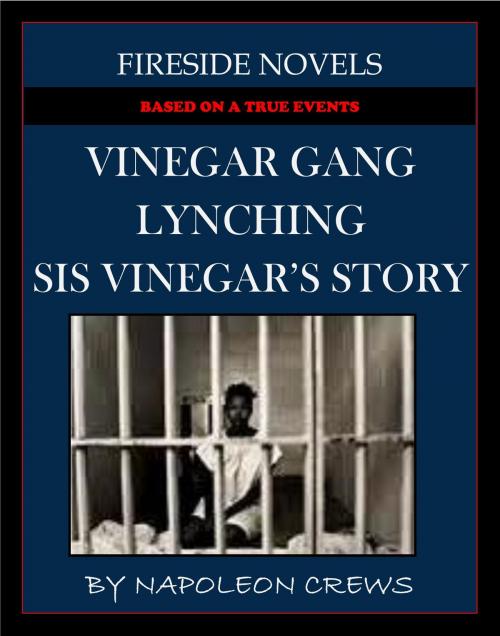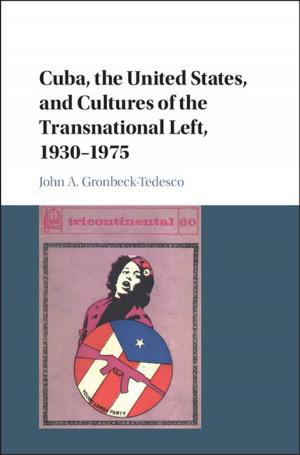| Author: | Napoleon Crews | ISBN: | 9781311522023 |
| Publisher: | Napoleon Crews | Publication: | March 29, 2015 |
| Imprint: | Smashwords Edition | Language: | English |
| Author: | Napoleon Crews |
| ISBN: | 9781311522023 |
| Publisher: | Napoleon Crews |
| Publication: | March 29, 2015 |
| Imprint: | Smashwords Edition |
| Language: | English |
On June 2, 1882 at about 9:30 p.m., David Bausman met death at the Kaw River while engaging in sexual intercourse with 14 year-old Sis Vinegar. Bausman was set upon by George Robinson, Sis’ boyfriend, and his friend Isaac King. On June 10, 1882 at about 1:00 a.m., a mob broke into the Douglas County Jail, removed Robinson, King, and Pete Vinegar, Sis’ father, and dragged them to the Kaw River Bridge and lynched them, one by one. Sis was spared the rope.
The coroner’s inquest determined that Bausman, an upstanding, well-to-do, white citizen of Lawrence and former soldier in the Civil War, was lured to the Kaw River bottoms by Sis Vinegar, a Negro prostitute. Bausman was robbed, beaten to death, and his battered body thrown into the water by the ‘Vinegar bunch.’ News articles described the Vinegar family as a den of outcasts, beggars, and thieves. Lawrence attorneys refused to represent Sis. She pled guilty and was sentenced to a life in prison at the federal prison in Leavenworth, Kansas. Sis died of tuberculosis, contracted from another inmate, seven years into her sentence.
Margaret ‘Sis’ Vinegar has never told her story, until now that is. Even a casual consideration of the facts and evidence points to a monumental miscarriage of justice, and three important questions arise. Was Bausman truly the upstanding citizen he was portrayed to be? Did Sis Vinegar and her family rightfully earn the labels of beggars and thieves? Why was it crucial to the Free State Cause that the Vinegars’ due process rights be severed and the lynch mob interposed as the best resolution for the Lawrence Community and the State of Kansas?
Sis Vinegar’s Story is told through Negro Attorney John Waller, who actually sought a governor’s pardon for Sis. John Waller is aided by his wife Susan, an articulate and forceful woman. The Wallers are joined by Lawrence, Kansas’ only Negro police officer, who was actually on the force at the time of the lynching. Sam’s reputation included excellent investigative skills.
On June 2, 1882 at about 9:30 p.m., David Bausman met death at the Kaw River while engaging in sexual intercourse with 14 year-old Sis Vinegar. Bausman was set upon by George Robinson, Sis’ boyfriend, and his friend Isaac King. On June 10, 1882 at about 1:00 a.m., a mob broke into the Douglas County Jail, removed Robinson, King, and Pete Vinegar, Sis’ father, and dragged them to the Kaw River Bridge and lynched them, one by one. Sis was spared the rope.
The coroner’s inquest determined that Bausman, an upstanding, well-to-do, white citizen of Lawrence and former soldier in the Civil War, was lured to the Kaw River bottoms by Sis Vinegar, a Negro prostitute. Bausman was robbed, beaten to death, and his battered body thrown into the water by the ‘Vinegar bunch.’ News articles described the Vinegar family as a den of outcasts, beggars, and thieves. Lawrence attorneys refused to represent Sis. She pled guilty and was sentenced to a life in prison at the federal prison in Leavenworth, Kansas. Sis died of tuberculosis, contracted from another inmate, seven years into her sentence.
Margaret ‘Sis’ Vinegar has never told her story, until now that is. Even a casual consideration of the facts and evidence points to a monumental miscarriage of justice, and three important questions arise. Was Bausman truly the upstanding citizen he was portrayed to be? Did Sis Vinegar and her family rightfully earn the labels of beggars and thieves? Why was it crucial to the Free State Cause that the Vinegars’ due process rights be severed and the lynch mob interposed as the best resolution for the Lawrence Community and the State of Kansas?
Sis Vinegar’s Story is told through Negro Attorney John Waller, who actually sought a governor’s pardon for Sis. John Waller is aided by his wife Susan, an articulate and forceful woman. The Wallers are joined by Lawrence, Kansas’ only Negro police officer, who was actually on the force at the time of the lynching. Sam’s reputation included excellent investigative skills.















